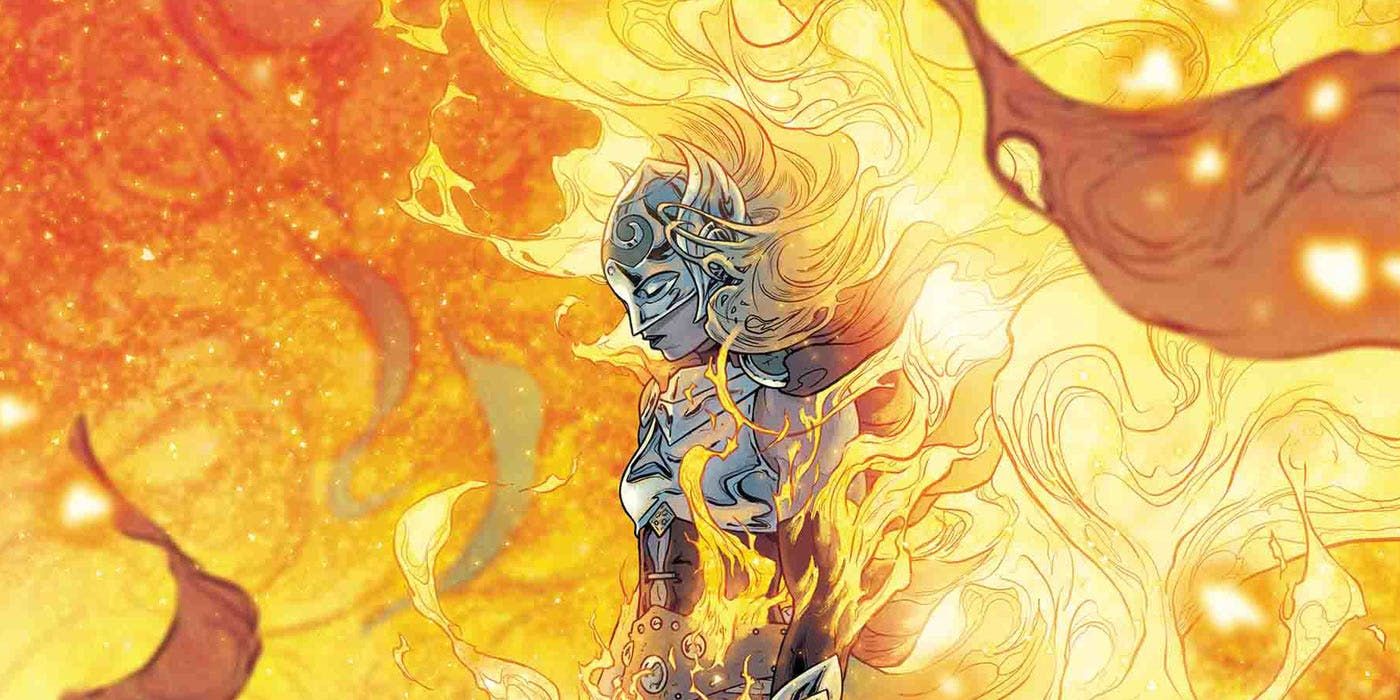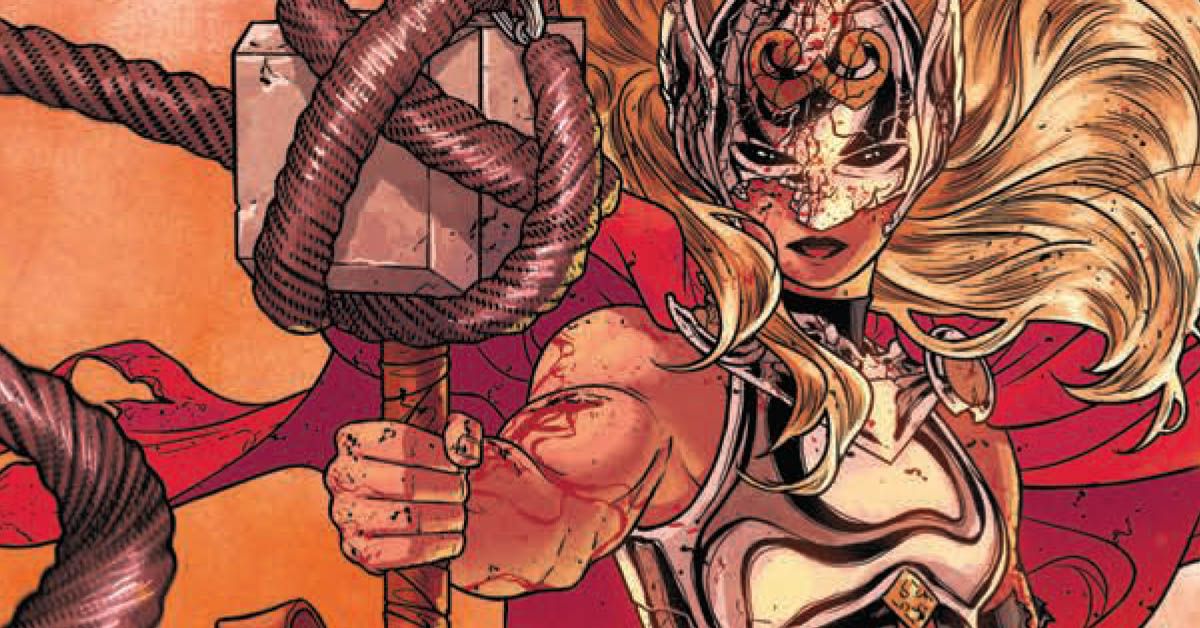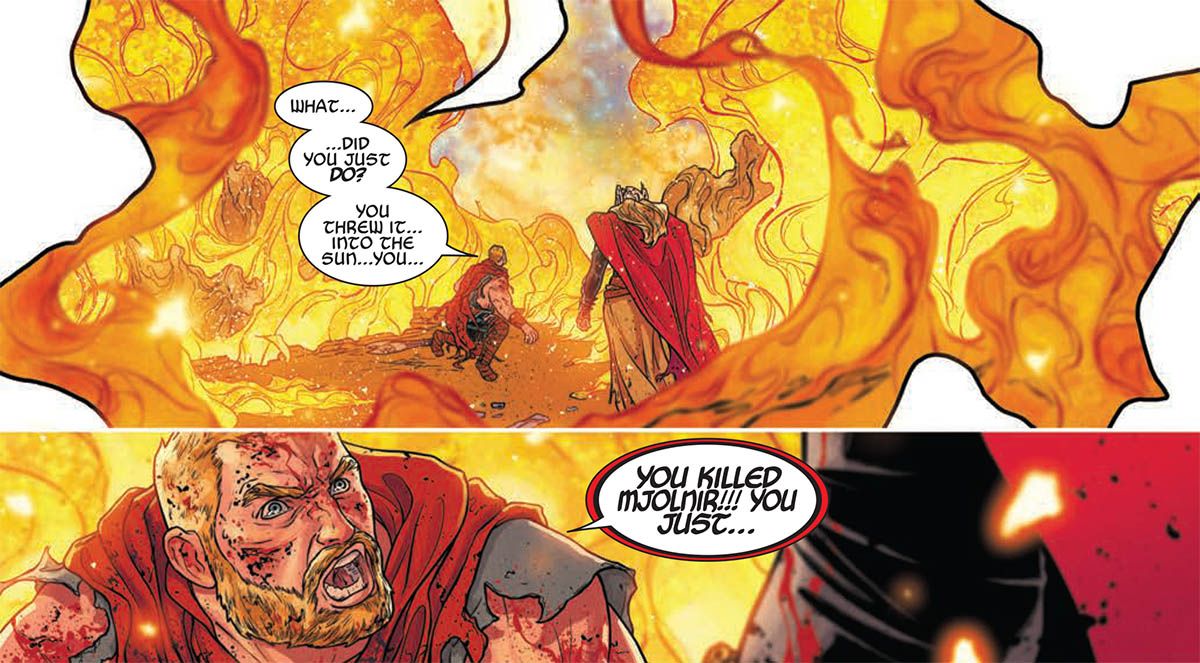SPOILER WARNING: The following article contains major spoilers for The Mighty Thor #705 by Jason Aaron, Russell Dauterman, Matthew Wilson and Joe Sabino, on sale now.
We all knew “The Death of The Mighty Thor” was coming; it’s the title of Jason Aaron and Russell Dauterman's final current arc, after all.
Jane Foster has struggled with cancer since before picking up the hammer and the mantle of The Mighty Thor and has known that every time she goes into action, she’s putting herself at risk and edging closer to death. With the Mangog on the loose in Asgardia, Jane Foster has no choice but to transform into The Mighty Thor once again -- and doing so costs her much more than her life, as she makes the ultimate sacrifice to defeat The Hatred Who Walks.
RELATED: The Mighty Thor Reintroduces a Forgotten Aspect of Jane Foster’s Past
Sundown
One of the major changes to the Thor mythos implemented by Aaron and Dauterman is that Mjolnir is much more of a living being than it has been before. The creative team established that within the mythical hammer dwelled the raging storm known as the God Tempest, the source of its power of thunder and lightning. This explained how Odinson can still be the God of Thunder even as Jane Foster/Thor wielded those powers. What's more, in the hands of Jane, Mjolnir was shown to have much of a mind of its own, even developing something of a personality.
That’s what makes this issue's sacrifice so effective. Jane doesn’t just sacrifice herself to destroy the Mangog -- she chains him to Mjolnir and orders it to fly into the sun, taking the monster with it. This is a much more powerful sacrifice than Jane going down in battle because she gets the final victory against Asgard’s most dangerous enemy, but in doing so she sacrifices the one thing keeping her alive. Without Mjolnir, Thor changes back into Jane Foster for the final time, and as the final page suggests, passes away from her illness.
Legacy of Thunder
We already know that Odinson will be going back to being Thor when the series relaunches in the summer, and the big selling point of that title is the creation of dozens, if not hundreds of new hammers. Thor himself seems to be wielding a new golden hammer as has been hinted in the visions of Karnilla in previous issues, so it shouldn’t come as too much of a surprise that Mjolnir is destroyed.
And yet, somehow it is.
By focusing so much on Jane’s illness and the power of the Mangog, Aaron and Dauterman were able to distract us from what was in front of our eyes this entire time. As a result, they succeeded in giving us one of the most effective and heartbreaking deaths in superhero comics, which is saying something. Jane Foster and Mjolnir may be gone, but their legacy will permeate through the Thor mythos for years to come. As Jane says to The Mangog before its defeat…
“In the end… it was not a god. ‘Twas a mortal. Named Jane. A woman who gave up everything in order to stop you. Remember that.”
Jane Foster may not be Thor any longer, but in many ways she will always be Thor. She proved that a human could become a god and gave everything she had in her life to protect humans and Asgardians alike. If there's one thing that Jane Foster is going to be remembered for above all else, it's that she was worthy.
KEEP READING: Wolverine Makes a Hospital Visit In Mighty Thor Post-Credits Scene



